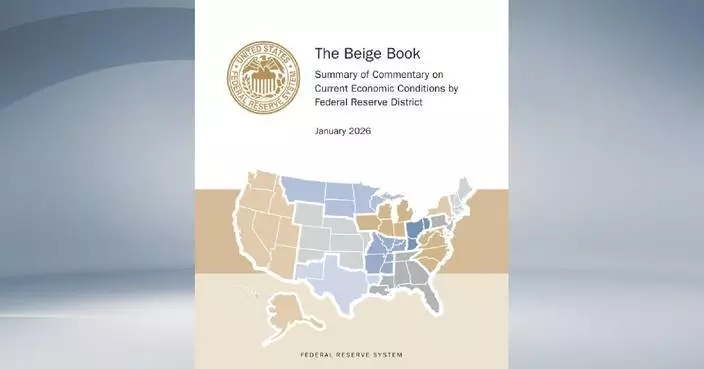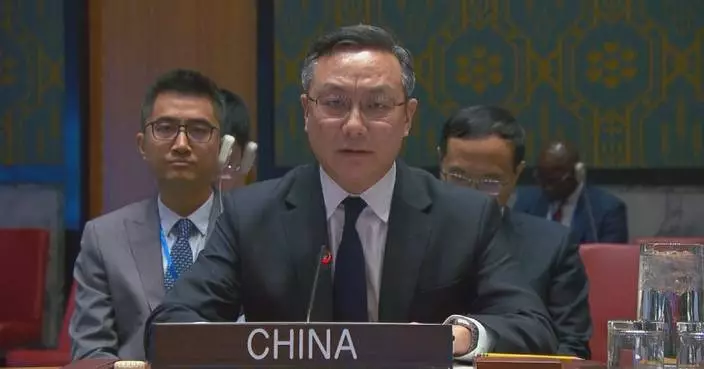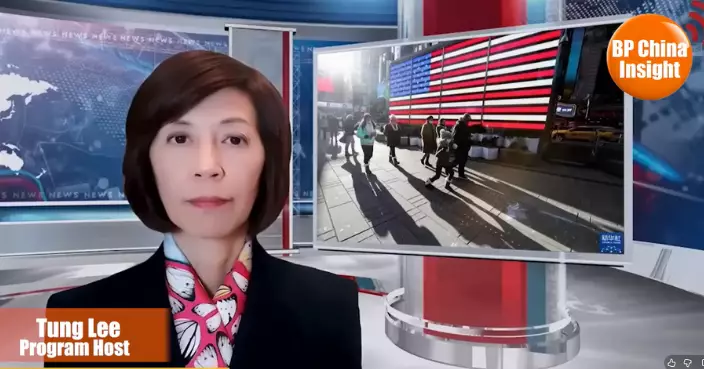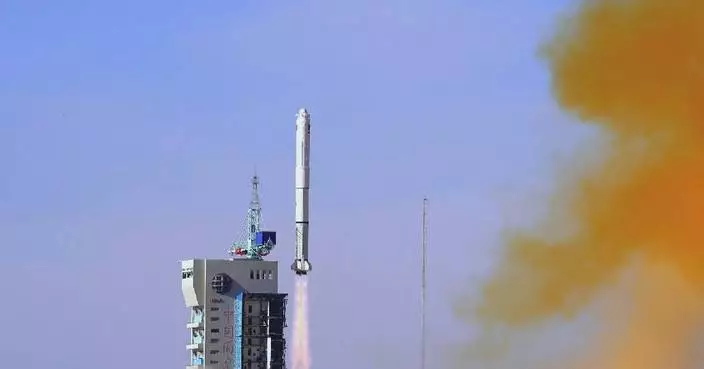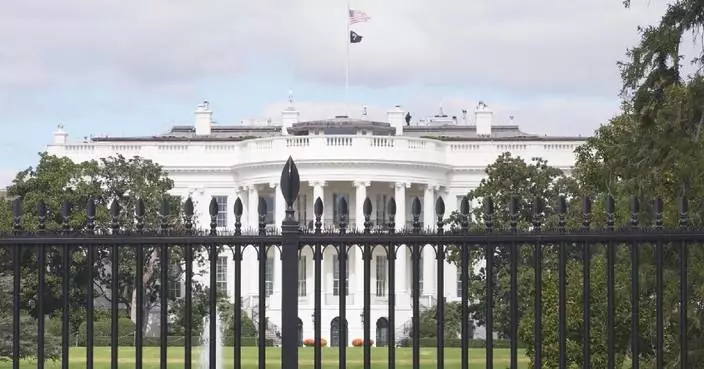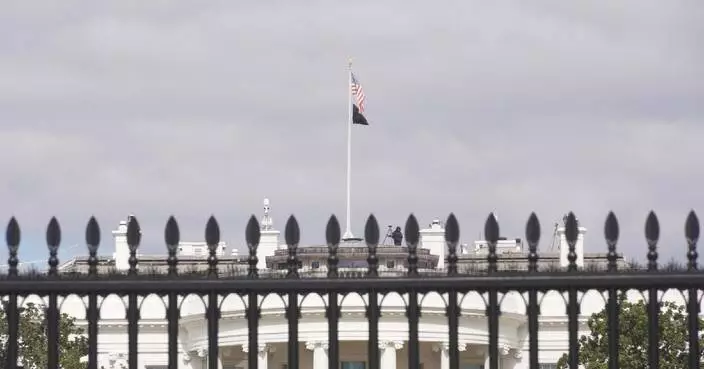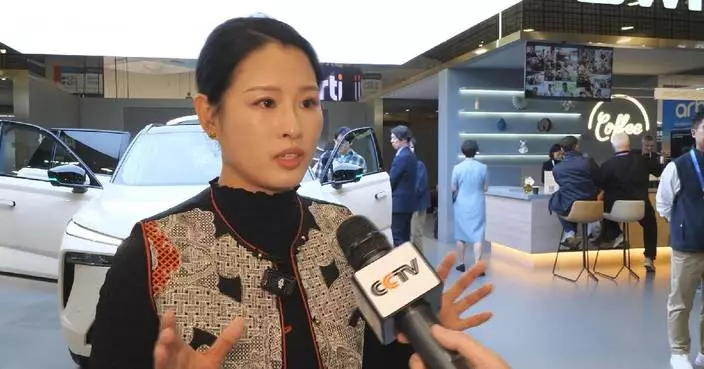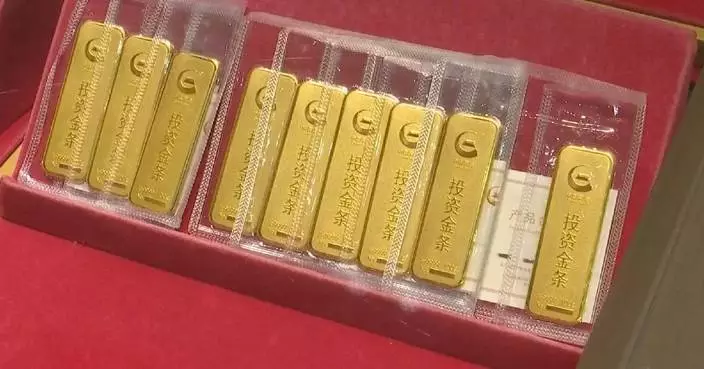Feature · News
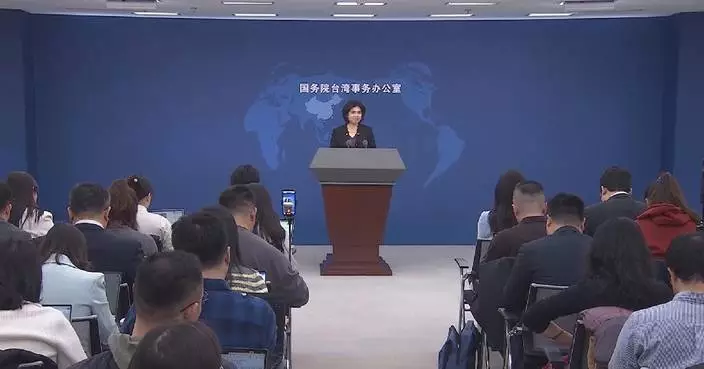
Taiwan's DPP authorities sells out semiconductor industry to detriment of people's interests: mainland spokeswoman
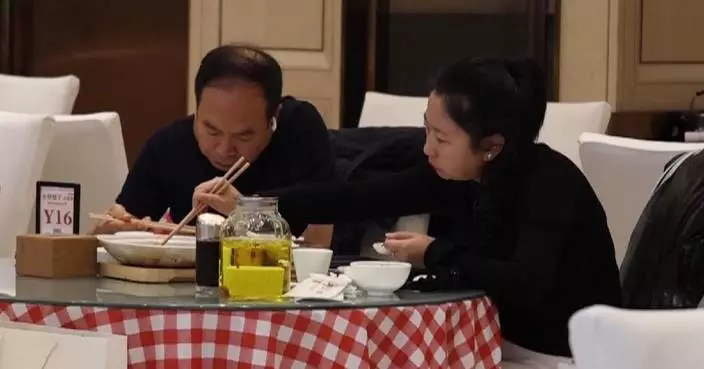
Restaurants see surge in bookings for Chinese New Year's Eve dinners
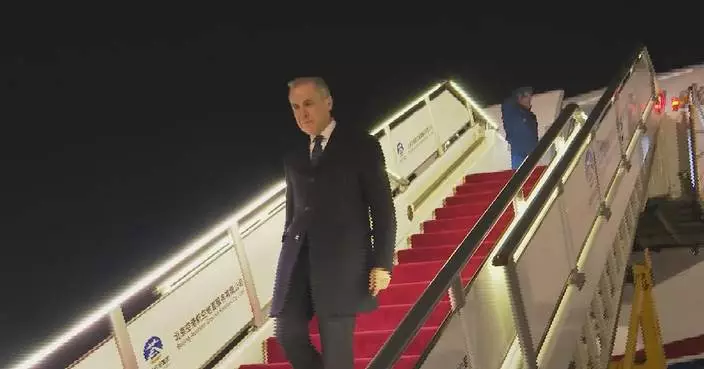
Canadian PM arrives in Beijing for official visit
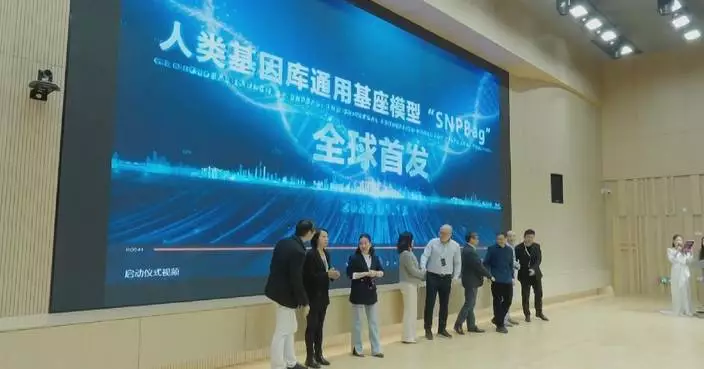
China launches world's first foundation model for genomic analysis

Chinese companies offer green solutions at World Future Energy Summit
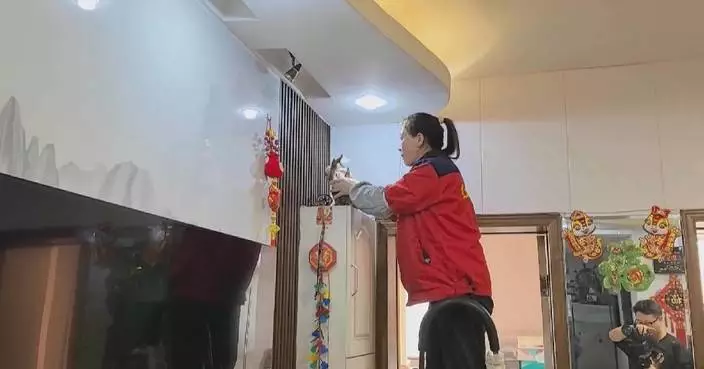
Demand in China for home cleaning services heats up ahead of Spring Festival
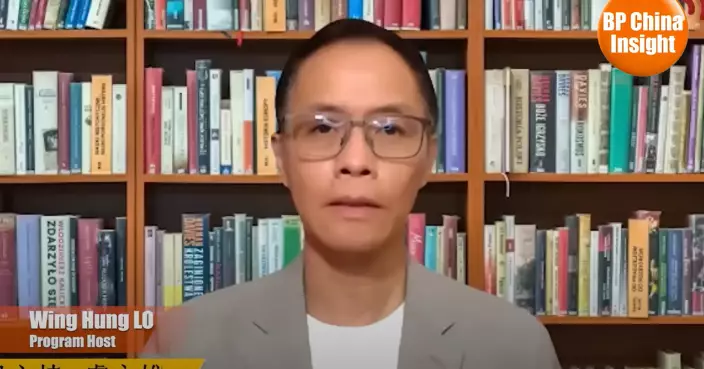
BP China Insight: US power shortage: considering using aircraft carrier to generate electricity

Tourism surge fosters people-to-people bonds between China, Canada

Proposals targeting immigration flood in following ICE shooting of Renee Good in Minneapolis
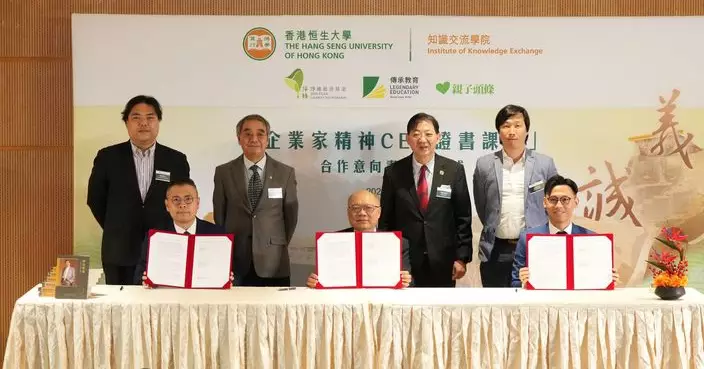
Hang Seng University of Hong Kong’s Institute of Knowledge Exchange Launches “Entrepreneurial CEO Certificate Course” to Cultivate Socially Responsible Business Leaders
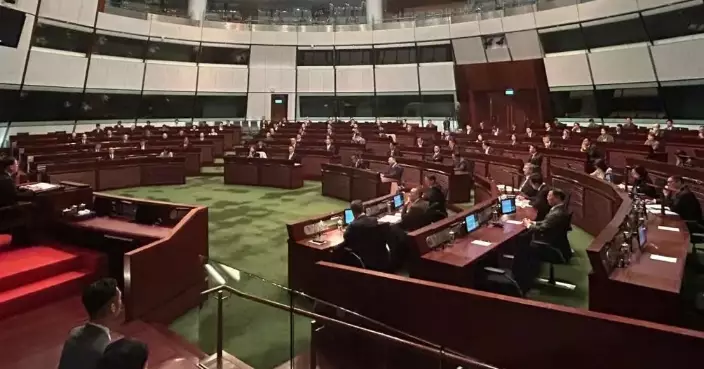
The New Legislative Council has Held its First Plenary Session, Focusing on the Issue of Post-Disaster Reconstruction of the Tai Po Fire
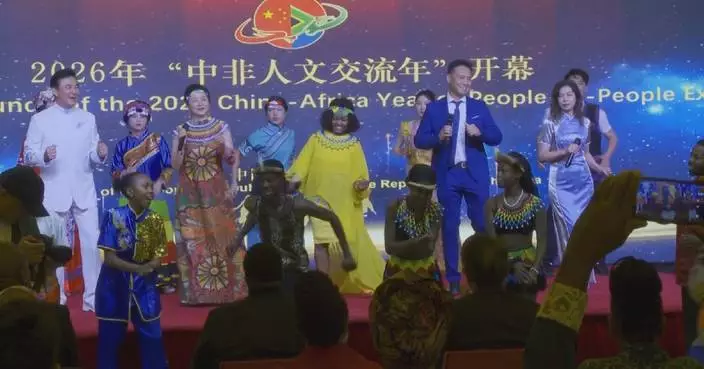
Chinese Embassy in South Africa unveils 2026 China-Africa Year of People-to-People Exchanges

Venezuelan artists in Caracas call for peace with poetry, song

AS Watson Celebrates 185 Years of Growth, Resilience and Purpose

SkyDrive Reaches General Understanding with AeroGulf Services on Purchase of 20 eVTOL Aircraft with Anticipated Delivery Beginning in 2028
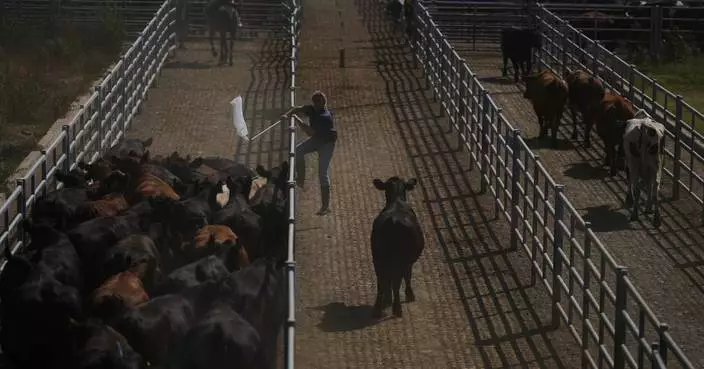
Forget tariff wars: The EU and Mercosur build one of the world's biggest free-trade zones

BP China Insight: US power shortage: considering using aircraft carrier to generate electricity
Tourism surge fosters people-to-people bonds between China, Canada

Proposals targeting immigration flood in following ICE shooting of Renee Good in Minneapolis

Hang Seng University of Hong Kong’s Institute of Knowledge Exchange Launches “Entrepreneurial CEO Certificate Course” to Cultivate Socially Responsible Business Leaders

Taiwan's DPP authorities sells out semiconductor industry to detriment of people's interests: mainland spokeswoman
Restaurants see surge in bookings for Chinese New Year's Eve dinners
Canadian PM arrives in Beijing for official visit
China launches world's first foundation model for genomic analysis
Chinese companies offer green solutions at World Future Energy Summit
Demand in China for home cleaning services heats up ahead of Spring Festival

The New Legislative Council has Held its First Plenary Session, Focusing on the Issue of Post-Disaster Reconstruction of the Tai Po Fire
Chinese Embassy in South Africa unveils 2026 China-Africa Year of People-to-People Exchanges
Venezuelan artists in Caracas call for peace with poetry, song

AS Watson Celebrates 185 Years of Growth, Resilience and Purpose

SkyDrive Reaches General Understanding with AeroGulf Services on Purchase of 20 eVTOL Aircraft with Anticipated Delivery Beginning in 2028

Forget tariff wars: The EU and Mercosur build one of the world's biggest free-trade zones
Feature·Bloggers

【Deep Throat】Trump's Latest Iran Tariff Bluff: China Sees Right Through It

【What Say You?】BNO Dream Crumbles: 60,000 Face the Door as UK Tightens the Screws

【Bastille Commentary】A Woman Prisoner Made 297 Requests in 3 Years—No Wonder Her Judicial Review Flopped

【Ariel】Jimmy Lai’s “Solitary” Twist: Judges Say He Asked For It

【What Say You?】Accomplice Witness Chen Zihao: Family Stalked, Fears Black Bloc Revenge After Release

【Deep Blue】International Laws? You Kidding Me?

Toronto schools closed and commuters face delays as heavy snow blankets southern Ontario
- Iran closes its airspace to commercial aircraft for hours as tensions with US remain high
- Live updates: Trump threatens to use the Insurrection Act in Minneapolis
- ITC Infotech Unveils Digital & AI Engineering Hub in Riyadh, Deepens Commitment to the Middle East Region.
- Trump set to meet Venezuelan opposition leader after cozying up to Maduro’s successor
- Control of the House is at the center of midterms. These charts help explain the fight
- Remains of 32 Cuban officers killed during strike on Venezuela repatriated as US threat lingers
- European troops arrive in Greenland as talks with US highlight 'disagreement' over island's future
- US seizes in Caribbean Sea another sanctioned oil tanker it says has ties to Venezuela
- The Latest: UN Security Council to discuss Iran's deadly protests after US request
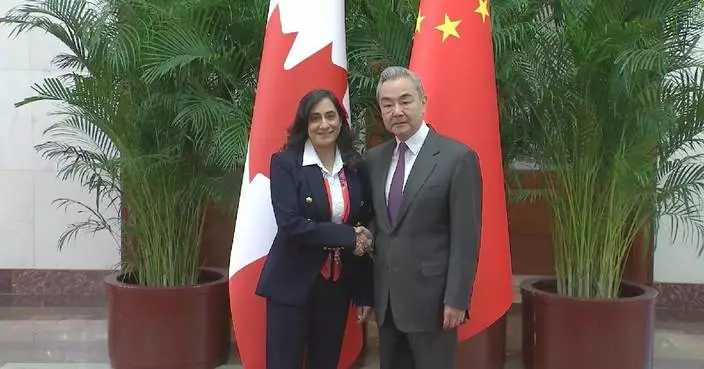
China ready to work for steady, sound ties with Canada: FM
- Japanese PM's erroneous remarks on China's Taiwan undermine regional stability
- Palestinian death toll in Gaza rises to 71,439: health authorities
- Russia, Ukraine update battle reports
- Chinese, Iranian FMs have phone conversation
- China ready to work for steady, sound ties with Canada: FM
- China's top legislator meets Canadian PM
- China willing to strengthen cooperation with Canada: premier
- "Soft landing" of China-EU EV case to significantly boost market confidence: MOC spokeswoman
- China has no need or intent to use currency depreciation for trade advantage: central bank
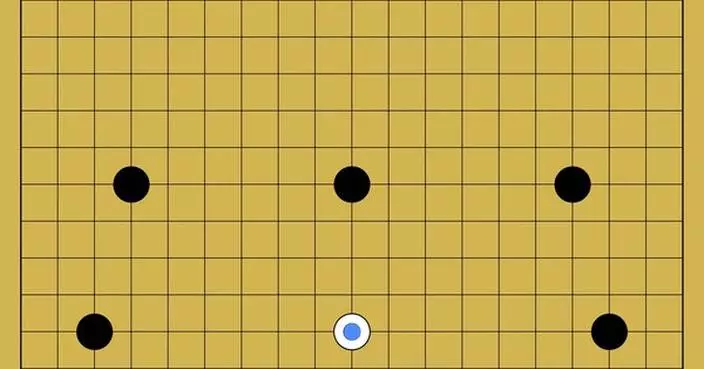
10 Years Since AlphaGo, Code Name: BlueSpot Disclosed Ahead of Handicap-Match Events
- GracoRoberts Acquires Sky Mart to Accelerate Latin American Expansion, Anchored by Miami Hub
- In a warming world, freshwater production is moving deep beneath the sea
- SECuRE trial to continue with no modifications to protocol following Safety Review Committee meeting
- Never mow lawns or clean pools the same again: MOVA showcases M∞VA Universe integrated smart outdoor technologies in Silicon Valley
- PhotonPay Expands UK Local Payment Rails via New Collaboration with ClearBank
- Massimo Group to Debut Second-Generation MVR HVAC Pro Series at 2026 PGA Show
- ESTsoft and Samsung Electronics Unveil 'AI Promoter' at CES 2026, Delivering an Innovative Exhibition Experience
- Just 198,000 Americans filed jobless claims last week, fewer than expected as layoffs remain low
- Turkish Airlines flight makes emergency landing in Barcelona after 'threat' alert

Ailing astronaut returns to Earth early in NASA's first medical evacuation
- Lawmakers propose $2.5B agency to boost production of rare earths and other critical minerals
- Aimed at the growing number of young Chinese who live alone, a new app asks: ‘Are you dead?'
- Wikipedia unveils new AI licensing deals as it marks 25th birthday
- Grok blocked from undressing images in places where it's illegal, X says
- NASA sends 4 astronauts back to Earth in first medical evacuation
- Public mistrust linked to drop in deceased donor organ donations and kidney transplants
- US overdose deaths fell through most of 2025, federal data reveals
- Free Starlink access for Iran seen as game changer for demonstrators getting their message out
- Barclays Research Finds Humanoid Robotics On Track to Become a $200 Billion Market by 2035
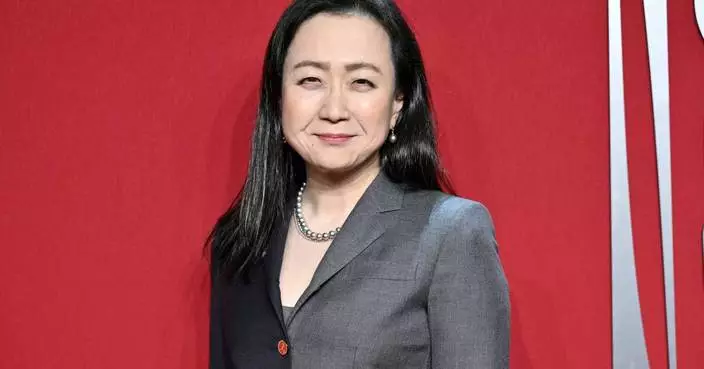
Min Jin Lee's 'Pachinko' follow-up, 'American Hagwon,' will explore Korean education obsession
- Actor Timothy Busfield ordered held without bond in New Mexico child sex abuse case
- Royal Opera sees generation change as Jakub Hrůša and Speranza Scappucci come in
- Julio Iglesias accused of sexual assault in Caribbean as Spanish prosecutors study the allegations
- Fanatics debuts Fanatics Studios with Olympics, Tom Brady and ESPN at Intuit Dome
- Warm up with creamy rutabaga, parsnip and cheddar soup
- Kim Gordon returns with defiant new solo album, 'Play Me': 'It does feel like an evolution'
- Serbians mark Orthodox Christian New Year according to old tradition
- At the NBR Awards, emotional speeches by Jafar Panahi and Ryan Coogler stir the room
- Japanese and South Korean leaders jam to K-pop hits at a summit

Inter Milan has 70% chance of Serie A title after becoming winter champion
- Brabec slows down deliberately to concede Dakar Rally bike lead and Al-Attiyah cruises
- McIlroy leads by one stroke after first round at Dubai Invitational
- Record-chasing Bayern faces Leipzig test in the Bundesliga
- Carrick has 17 games to convince Man United and the first two are daunting
- Norway coaches banned in ski jumping suit scandal verdicts ahead of Winter Olympics
- Alcaraz, Sinner, Djokovic, Shelton lead the 2026 Australian Open men's field
- Sabalenka, Swiatek, Gauff, Keys and Venus Williams highlight the 2026 Australian Open women's field
- Carlos Alcaraz, Jannik Sinner and Iga Swiatek head into 2026 in search of a career Grand Slam
- Little Lens blossoming into serious rival for big spender PSG in Ligue 1 title race
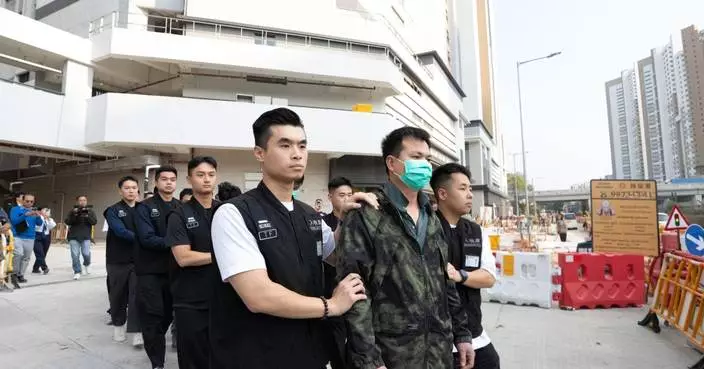
Six illegal workers and an employer arrested in Hong Kong's anti-illegal worker operation Contribute.
- Tai Po Fire Identifies 168 Victims, Police Confirm No Unidentified Remains
- Health Officials from Mainland, Hong Kong, and Macao Meet to Discuss Medical Innovations and Public Health Strategies
- HKMA Warns Public About Recent Banking Scams and Fraudulent Websites
- HYAB Launches Youth Start-up Internship Programme 2026 for Young Innovators in Hong Kong
- Hong Kong Customs Seizes $4.2 Million in Drugs, Arrests 28-Year-Old Man in Yau Tong Operation
- Hong Kong Customs Seizes $7.3 Million in Counterfeit Luxury Goods, Arrests Two Shop Owners
- Hong Kong Reports No New Chikungunya Fever Cases; Ongoing Mosquito Control Efforts Continue
- Passenger Sentenced to Three Months for Smuggling $21,000 in Duty-Not-Paid Cigarettes
- New Statistics Digest Reveals Marriage and Divorce Trends in Hong Kong, 1991-2024
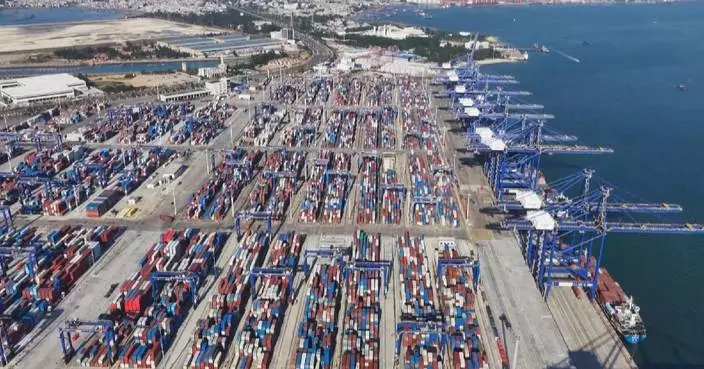
China's foreign trade promises further growth in 2026
- National online shopping event to be launched for Spring Festival
- China cuts interest rates on structural monetary policy tools by 0.25 percentage points
- China, Canada have huge cooperation potential in economic, trade fields: commerce ministry
- China's new round of trade-in subsidy program drives consumer goods sales
- Hong Kong stocks close lower Thursday
- Uganda’s Museveni faces opposition leader in presidential election
- Exports of electromechanical products surge in 2025
- Chinese shares close mixed Thursday
- South Africa unveils decade-long strategy to combat FMD
Category · News

Toronto schools closed and commuters face delays as heavy snow blankets southern Ontario

Iran closes its airspace to commercial aircraft for hours as tensions with US remain high

Live updates: Trump threatens to use the Insurrection Act in Minneapolis

Inter Milan has 70% chance of Serie A title after becoming winter champion

ITC Infotech Unveils Digital & AI Engineering Hub in Riyadh, Deepens Commitment to the Middle East Region.

Trump set to meet Venezuelan opposition leader after cozying up to Maduro’s successor

10 Years Since AlphaGo, Code Name: BlueSpot Disclosed Ahead of Handicap-Match Events
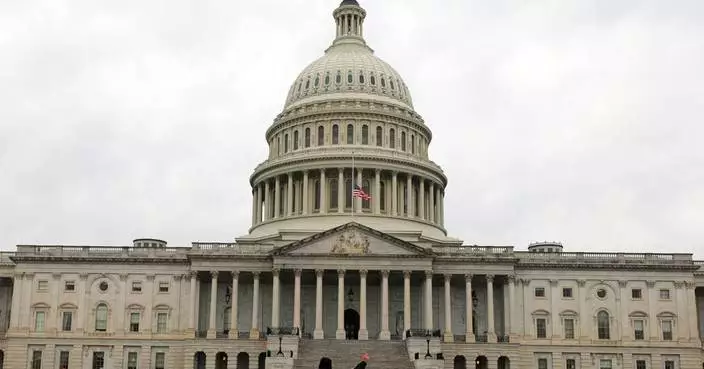
Control of the House is at the center of midterms. These charts help explain the fight

Remains of 32 Cuban officers killed during strike on Venezuela repatriated as US threat lingers

European troops arrive in Greenland as talks with US highlight 'disagreement' over island's future

China ready to work for steady, sound ties with Canada: FM
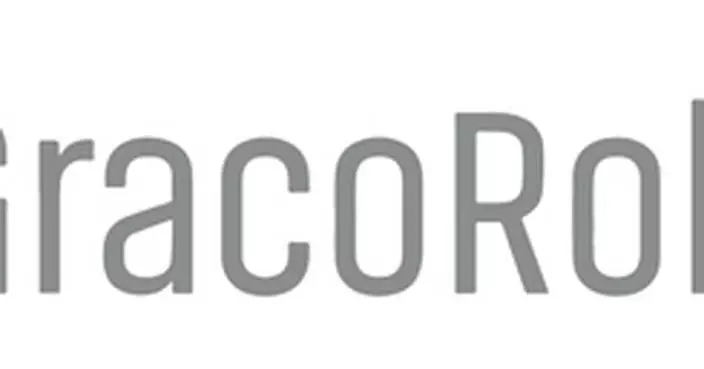
GracoRoberts Acquires Sky Mart to Accelerate Latin American Expansion, Anchored by Miami Hub

US seizes in Caribbean Sea another sanctioned oil tanker it says has ties to Venezuela

The Latest: UN Security Council to discuss Iran's deadly protests after US request

Photos show voters going to the polls in Uganda's presidential election

Google Founding Board Member Ram Shriram Joins GridCARE Board of Directors

Brabec slows down deliberately to concede Dakar Rally bike lead and Al-Attiyah cruises

France's Macron laughs off 'harmless' eye condition as he addresses troops

Trump threatens to use the Insurrection Act to end protests in Minneapolis

What's next for Greenland and Denmark after difficult meeting with Trump administration

In a warming world, freshwater production is moving deep beneath the sea

Netanyahu says the announced start of Gaza ceasefire's next phase is a 'declarative move'
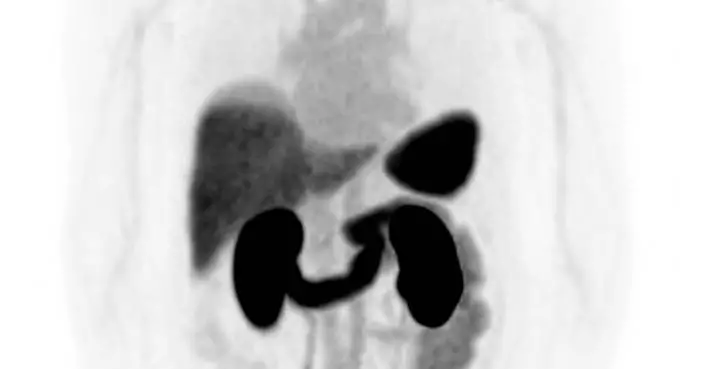
SECuRE trial to continue with no modifications to protocol following Safety Review Committee meeting
Japanese PM's erroneous remarks on China's Taiwan undermine regional stability
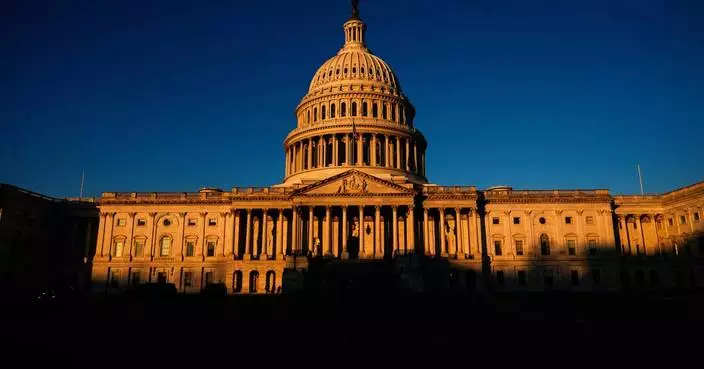
10% of US House members have announced they're not running for reelection, an AP analysis shows

ESTsoft and Samsung Electronics Unveil 'AI Promoter' at CES 2026, Delivering an Innovative Exhibition Experience

Massimo Group to Debut Second-Generation MVR HVAC Pro Series at 2026 PGA Show

PhotonPay Expands UK Local Payment Rails via New Collaboration with ClearBank

Never mow lawns or clean pools the same again: MOVA showcases M∞VA Universe integrated smart outdoor technologies in Silicon Valley

Just 198,000 Americans filed jobless claims last week, fewer than expected as layoffs remain low

McIlroy leads by one stroke after first round at Dubai Invitational

Vetter Reaches Key Launch Milestones for the V-OVS® next Tamper-Evident Syringe Closure System

Turkish Airlines flight makes emergency landing in Barcelona after 'threat' alert

Niagen Bioscience Expands HSA/FSA Access for Tru Niagen®, the Leading NAD+ Supplement in the U.S.*

DDC Enterprise Acquires 200 BTC, Marking Its First Bitcoin Purchase of 2026

Skillsoft Appoints Bernard Barbour as Chief Technology and Product Officer
Palestinian death toll in Gaza rises to 71,439: health authorities

Rachel Goldberg-Polin's memoir recounts her journey after her son's abduction by Hamas

Senators launch a cross-party effort to end stock trading by lawmakers

ON.energy Deploys Medium Voltage AI UPS for Grid-Safe AI Campuses at National Laboratory of the Rockies
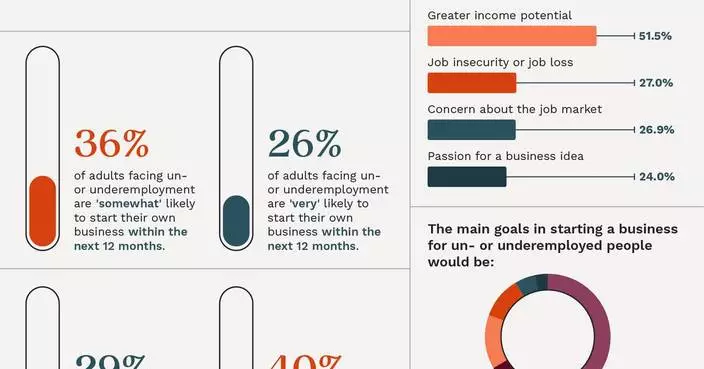
New Survey from LegalZoom Reveals Rising Interest in Entrepreneurship Among Underemployed Adults as Economic Uncertainty Reshapes Career Priorities

QPS Selects Oracle Argus Safety Database to Enhance Pharmacovigilance in Clinical Trials

ANTECH™ Academy Celebrates 20 Years of Advancing Continuous Veterinary Education in Europe
Russia, Ukraine update battle reports

Mantle Expands Global DeFi Access through Infinex Integration

Uganda’s presidential election experiences hours of delays at some polling stations
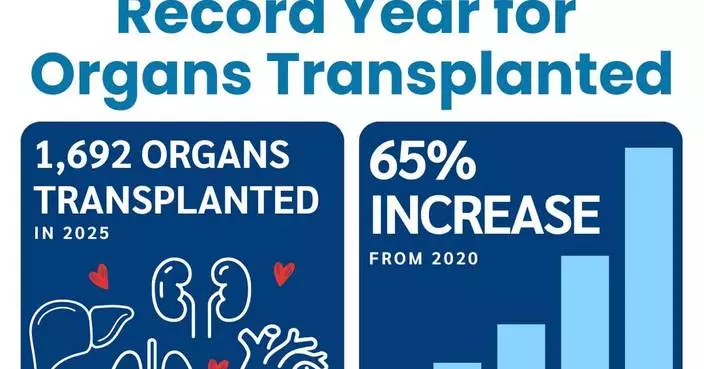
New England Donor Services Announces Record Number of Life-Saving Organ Transplants in 2025

UK's Conservative Party leader sacks chief rival after apparent plot to defect

Envision Launches Dubhe, Shaping the AI Energy System with the World's First Energy Foundation Model

Ailing astronaut returns to Earth early in NASA's first medical evacuation
Chinese, Iranian FMs have phone conversation
China ready to work for steady, sound ties with Canada: FM

Hilton Introduces Apartment Collection by Hilton: Furnished Apartment Accommodations, Hosted by Hilton

Lawmakers propose $2.5B agency to boost production of rare earths and other critical minerals

What Americans think about Trump's first year back in office, according to AP-NORC polling

Accenture Named a Leader in Gartner® Magic Quadrant™ for Digital Technology and Business Consulting Services

Record-chasing Bayern faces Leipzig test in the Bundesliga

Carrick has 17 games to convince Man United and the first two are daunting

Rights group warns on failure to deliver justice after sectarian killings in Syria's Sweida
China's top legislator meets Canadian PM
China willing to strengthen cooperation with Canada: premier

Norway coaches banned in ski jumping suit scandal verdicts ahead of Winter Olympics

Six illegal workers and an employer arrested in Hong Kong's anti-illegal worker operation Contribute.

Alaska woman appeals voter fraud charges in case that puts spotlight on status of American Samoans
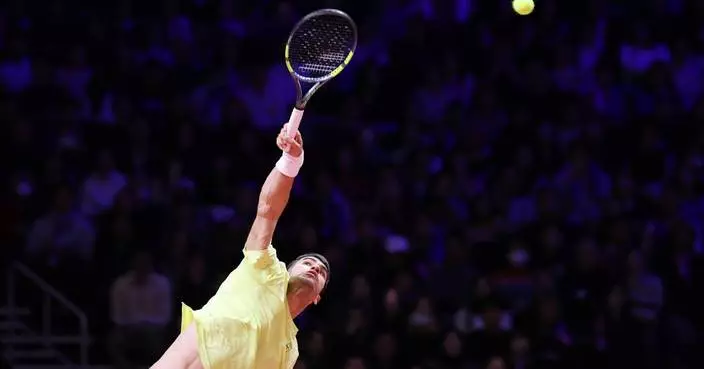
Alcaraz, Sinner, Djokovic, Shelton lead the 2026 Australian Open men's field

Sabalenka, Swiatek, Gauff, Keys and Venus Williams highlight the 2026 Australian Open women's field

Ionic Mineral Technologies Appoints Shane Porzio as Chief Operating Officer to Lead Scale-Up of Rare Earths and Critical Minerals Supply Chain

Berkshire Hathaway HomeServices California Properties Expands Service Offerings with Addition of New Relocation Director Sarah Riach

Intuit TurboTax Opens NYC Flagship, Uniting AI and Human Expertise to Reinvent In-Person Tax Filing Nationwide

Carlos Alcaraz, Jannik Sinner and Iga Swiatek head into 2026 in search of a career Grand Slam
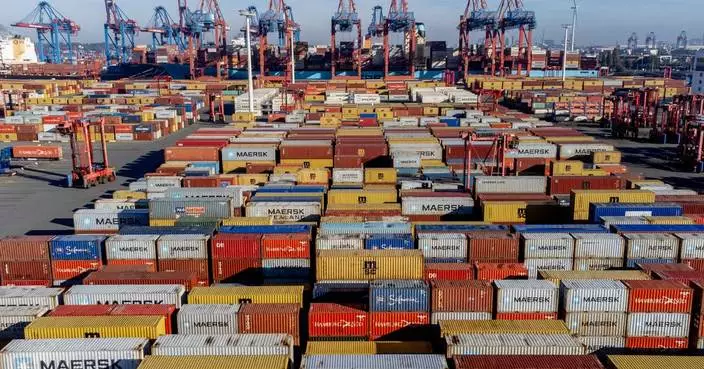
Germany's troubled economy shows modest growth after two years of shrinkage

Tai Po Fire Identifies 168 Victims, Police Confirm No Unidentified Remains
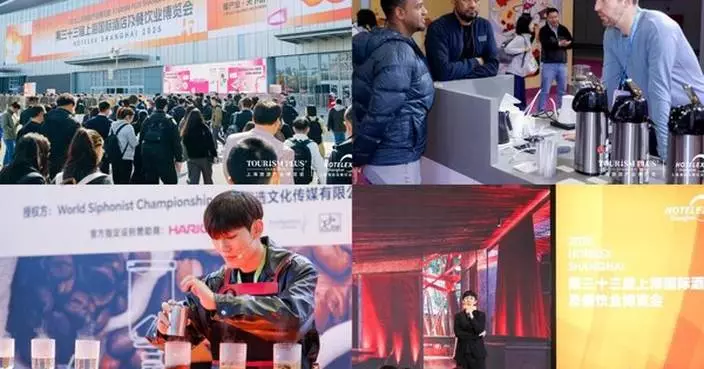
Maximize Your Business Growth in Asia's Hospitality & Foodservice Market at HOTELEX 2026

Russia expels British diplomat from Moscow embassy over spying claims
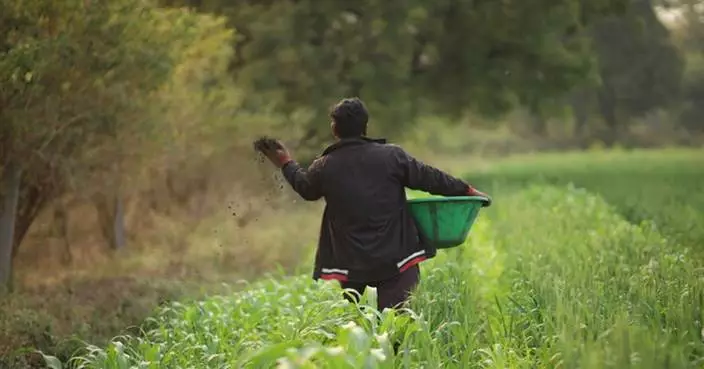
Varaha Signs Carbon Removal Agreement with Microsoft

TNG Digital and EPOS Launch EPOS360 and EPOS360 BlueTap in Malaysia to Help Local SMEs Grow with AI and Unique Payment Capabilities

MEXC 2025 Growth Exceeds 130%, Anchored by $1B+ in User Savings from Zero-Fee Trading

Little Lens blossoming into serious rival for big spender PSG in Ligue 1 title race
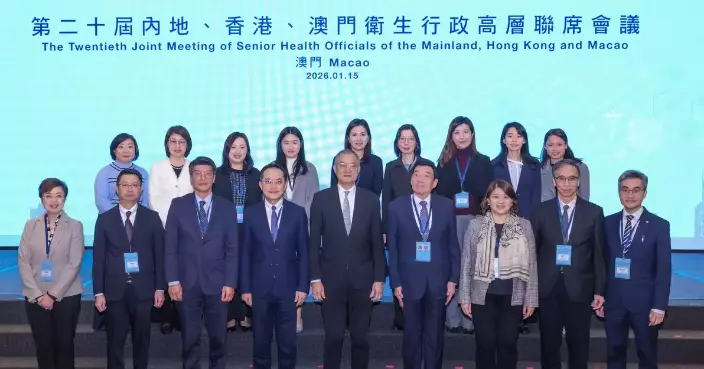
Health Officials from Mainland, Hong Kong, and Macao Meet to Discuss Medical Innovations and Public Health Strategies
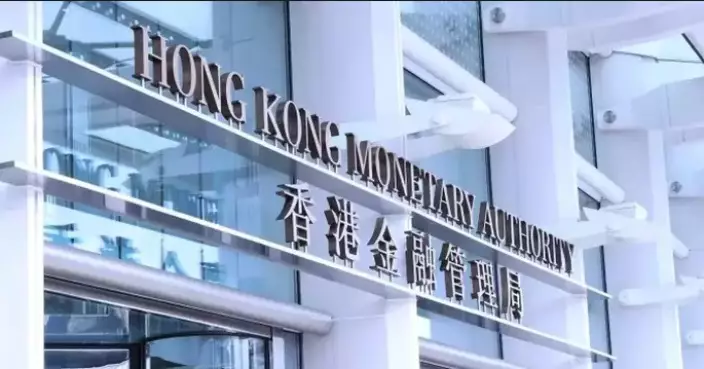
HKMA Warns Public About Recent Banking Scams and Fraudulent Websites

Teledyne FLIR Defense Wins $32 Million Contract to Provide Recon Surveillance Kit on Strykers for Bulgaria
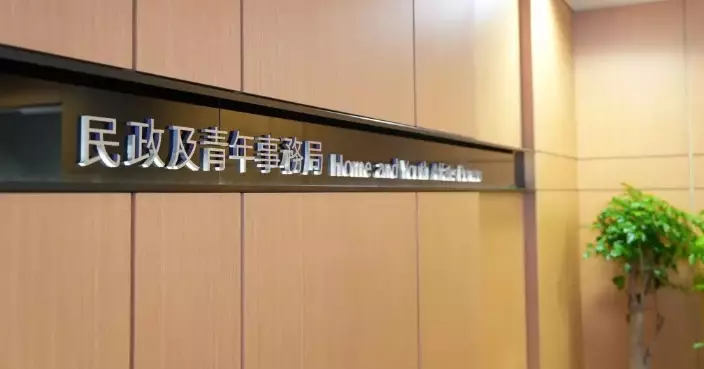
HYAB Launches Youth Start-up Internship Programme 2026 for Young Innovators in Hong Kong

Hong Kong Customs Seizes $4.2 Million in Drugs, Arrests 28-Year-Old Man in Yau Tong Operation
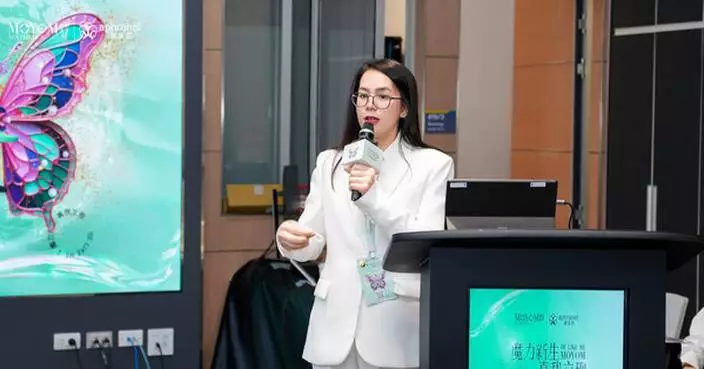
Aphranel Convenes Cadaver Dissection Class in Thailand Successfully


